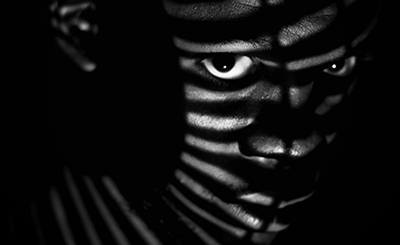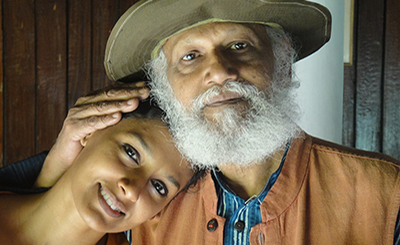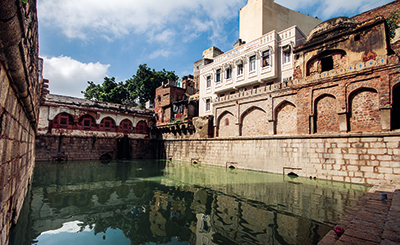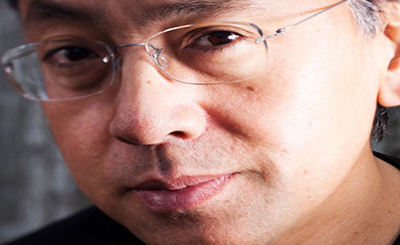
In The Front Page Murders: A True Story, Puja Changoiwala, who covered the gruesome murder of a senior citizen in a wealthy Mumbai neighbourhood, recounts the story behind the sensational case of multiple murders. She explores the murky depths of a serial killer’s mind and the media's frenzy for a juicy story. An excerpt:
In locker no. 162 of a Lokhandwala-based bank, the Mumbai Police stumbled upon a piece of paper. It read:
I Anuj Tikku son of A.K.Tikku is not happy with my life. So I am taking my own life because this life has given more Just sadness and depression and Failours. Nobody should responsible For my deth because going twords moksha. I am frecceing my soul from my body. This world is all fake.
(Signed) Anuj Tikku
Anuj didn’t remember writing this suicide note. The handwriting was his, but the memory of having penned it had disappeared. The actor was probably drugged when he wrote this note, or when he was made to write it. The note was another part of Vijay Palande’s plan. Had the blueprint in the killer’s mind been executed, 62-year-old Arunkumar Tikku would have vanished from Mumbai, his body never to be found, no one even aware that he was dead. His son, meanwhile would have been killed, the slaughter masked as a suicide. Palande would then make the victory walk to Anuj’s apartment and take it over. It would have cost him the blood of two men, but it was a price he was willing to pay.
‘The suicide note was a masterstroke,’ I was told by an officer who was part of the investigating team. ‘We opened the locker on mere suspicion. We were expecting to find some stolen material, something incriminating, but the note was unexpected, even scary. It takes a devious mind to come up with such an idea and the courage to execute it. And if you add Palande’s cold heart to that, you have an overwhelming killer. And that note did overwhelm us. It changed all our perceptions about the crime. For us, it wasn’t just about Arunkumar Tikku’s murder any more, it became about Vijay Palande’s potential – his aptitude for devious planning and its flawless execution.’
The locker where this suicide note was found was jointly owned by Simrin Sood and her brother Karan Sood, Vijay Palande’s alias. In order to gain access to it, the cops obtained a local court’s permission and turned to Palande for the key. He said he’d lost it, an obvious lie. The cops then wrote to the bank. ‘For the purpose of further investigation in the case, the search of the said locker is required to be taken. Hence, you are hereby requested to break open the said locker to facilitate the said investigation,’ the letter read. The bank agreed, and the locker in the strongroom was broken open.
Immediately after the letter was found, investigators confronted Anuj with it. He confirmed that the handwriting and the signature were his. But when asked if he had been contemplating suicide, he said no. When asked if he remembered exactly when the letter was written, he said no. When asked if he was mentally stable when he wrote it, he said no.
‘I just can’t remember writing that letter. I remember my conversations with Vijay Palande, I remember the times when we would go out, share a drink or two. It was an instant connection between the two of us – like fate had brought me to this person, wanted me to be friends with him. The moment we met, we found several common interests in Osho, philosophy, spirituality, so many other things. He was a sophisticated, polished man. He sipped Bombay Sapphire, drove a Mercedes, lived in one of the most expensive apartments. You don’t expect intellectual, affluent men like him to be murderers,’ Anuj told me during a telephonic conversation. The actor, who abandoned his Bollywood dream and moved back to Delhi soon after his father’s murder, continued to be perplexed at the deceit of his ‘friends’.
The Mumbai Police ascertained that in order to attract Anuj, to show that he wasn’t interested in his money, that he had enough of his own, Palande would often talk about his flourishing business, buy cocaine for the actor, gift him expensive alcohol. Anuj, who was usually the one to splurge on friends, was impressed with Palande, and drawn to him. ‘Like a stupid moth to a flame,’ Anuj said bitterly.
‘When the police approached me with the suicide note, I was stunned. I still try hard to think what drug he could have possibly given me that made me write the note, but have no memory of it. I have no answers,’ he told me.
Intrigued by Vijay Palande’s antics, I decided to get hold of the man, and question him about the various allegations levied against him. Through his lawyer, I managed to get an introduction with him at a Mumbai sessions court, where he used to be produced as an undertrial. When I asked him about the suicide note during one of our three to four interactions, he appeared nonchalant to the point of callousness.
‘Anuj Tikku.’ He gave me a sarcastic smile. ‘Great. Absolutely bankrupt guy, high on drugs. You visit Samartha Angan – right from the watchman to the milkman, see how much money he owes them. He was doing petty roles, which his father was against. He was not getting along with his father, and was going absolutely bankrupt. So one fine day, he calls me up, and he says he wants to commit suicide. I asked why. Moksha and all that bullshit, he started saying. Then he said, “I don’t want to live.” I said, forget about it. Right? Then, where do I keep the suicide note? In my house. After the murder took place, the police said that they found the note in my locker. What will I do? What will I do with the suicide note in my locker?’
Dressed in a crisp white shirt and a pair of black trousers, Vijay Palande did not look like a murderer to me. His attire was that of a well-heeled man – Nike shoes on his feet, a gold Cross pen in his breast pocket and a leather bag on his shoulder. And his demeanour — his set jaw, stiff back and piercing eyes behind a pair of rimless glasses — completed the picture of an urbane, prosperous man. ‘I’m a businessman,’ he said to me. ‘That’s how I look like one.’
When I told him that the police believed he had preserved the note since he wanted to kill Anuj and depict his death as a suicide, he said, ‘Anuj wanted to kill his dad. He had property worth ₹80 crore. And why will I kill Anuj if he’s bankrupt? If I wanted to do that, I would have just taken him to Bangkok, put him in the sea.’
‘Right,’ I said, unsure how else to react.
(Excerpted from The Front Page Murders: A True Story by Puja Changoiwala, with permission from Hachette India)
More from The Byword
Comments
*Comments will be moderated











